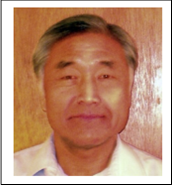Invited Session 4: The Art of Dose Optimization Throughout the Drug Lifecycle
10:00 AM - 11:45 AM, May 17, 2025; Chem-H Rotunda E241
Chair: Byung Park
Speakers: Haitao Pan, Shivaani Kummar, Leena Ghandi, Yue Yang;
Discussant: Naitee Ting
Chair: Dr. Byung Park, Oregon Health & Science University
 Byung Park is a professor of Biostatistics in the OHSU-PSU School of Public Health, the director of Biostatistics Shared Resource (BSR) with the Knight Cancer Institute, and he is an associate director of Biostatistics and Bioinformatics Core (BBC) at the Oregon National Primate Research Center. He has a long-standing collaboration with investigators from Knight Cancer Institute (KCI) and Oregon National Primate Research Center (ONPRC), since he joined the Oregon Health & Science University as a collaborative biostatistician (2002-present). He has a broad range of expertise including clinical trials, high-dimensional genomic data modeling, general linear models, mixed effect models and statistical genetics. His current research interest focuses on designs of earlier phases of oncology clinical trials for targeted agents, statistical analysis of clinical trials, and statistical methods for high-dimensional genomic data. As the BSR at the KCI, he collaborates with investigators by designing and developing statistical analysis plans for clinical trial protocols as well as he serves as a reviewer for the Clinical Research Review Committee (CRRC). He served as a faculty for the AACR/ASCO Methods in Clinical Cancer Research Workshop from 2018 to 2021. He is a member of ASCO Conquer Cancer Grant Selection Committee and Annual Meeting Scientific Program Committee .
Byung Park is a professor of Biostatistics in the OHSU-PSU School of Public Health, the director of Biostatistics Shared Resource (BSR) with the Knight Cancer Institute, and he is an associate director of Biostatistics and Bioinformatics Core (BBC) at the Oregon National Primate Research Center. He has a long-standing collaboration with investigators from Knight Cancer Institute (KCI) and Oregon National Primate Research Center (ONPRC), since he joined the Oregon Health & Science University as a collaborative biostatistician (2002-present). He has a broad range of expertise including clinical trials, high-dimensional genomic data modeling, general linear models, mixed effect models and statistical genetics. His current research interest focuses on designs of earlier phases of oncology clinical trials for targeted agents, statistical analysis of clinical trials, and statistical methods for high-dimensional genomic data. As the BSR at the KCI, he collaborates with investigators by designing and developing statistical analysis plans for clinical trial protocols as well as he serves as a reviewer for the Clinical Research Review Committee (CRRC). He served as a faculty for the AACR/ASCO Methods in Clinical Cancer Research Workshop from 2018 to 2021. He is a member of ASCO Conquer Cancer Grant Selection Committee and Annual Meeting Scientific Program Committee .
The Reversed Multi-Arm Two-Stage (RevMATS) Design in Oncology Dose Optimization
Speaker: Yue Yang, PhD, Sanofi
 Yue Yang is an associated statistical project leader at Sanofi. She obtained her Ph.D. in statistics from North Carolina State University and currently works in the oncology statistics team at Sanofi. She has led several early oncology projects for both solid tumors and hematologic malignancies. Her current research focuses on clinical trial design and decision-making in oncology, including but not limited to basket trial design, seamless phase 2/3 design, study design with an external control arm, and dose optimization design.
Yue Yang is an associated statistical project leader at Sanofi. She obtained her Ph.D. in statistics from North Carolina State University and currently works in the oncology statistics team at Sanofi. She has led several early oncology projects for both solid tumors and hematologic malignancies. Her current research focuses on clinical trial design and decision-making in oncology, including but not limited to basket trial design, seamless phase 2/3 design, study design with an external control arm, and dose optimization design.
Abstract
In response to the FDA’s Project Optimus, which redefined the dose optimization paradigm in oncology drug development, various novel trial designs have emerged. Jiang et al. (2023) proposed the Multi-Arm Two-Stage (MATS) design, integrating proof-of-concept (PoC) evaluation and dose optimization across multiple indications under a Bayesian hierarchical model (BHM) framework. For all considered indications/cohorts, the MATS design enrolls participants at the most promising dose initially, followed by dose randomization only in selected cohorts. We propose the Reversed MATS (RevMATS) design, which reverses these two stages—randomizing participants to multiple doses across indications/cohorts first before selecting the optimal dose for continued enrollment (or stopping due to early futility). This approach is suited for cases where multiple doses show similar early activities or when evidence is insufficient to favor one dose over the other a priori. The RevMATS design further improves the BHM by incorporating broader dose-response profiles (as seen in recent novel therapies of different modalities) and explicitly leveraging early-phase dose-escalation data to enhance decision-making.
DTE-BOP2: A Bayesian Optimal Phase II Clinical Trial Design Accounting for Delayed Treatment Effects in Immunotherapy
Speaker: Haitao Pang, Associate Professor of Biostatistics, St. Jude Children’s Research Hospital
 Dr. Haitao Pan is an Associate Professor of Biostatistics at St. Jude Children’s Research Hospital. His research focuses on innovative clinical trial designs, particularly in oncology, across all phases of development. He has authored over 60 peer-reviewed publications and a book published by Springer Nature, and has developed 18 R software packages to support adaptive trial design and sample size calculation—many of which are used in clinical trial protocols at St. Jude. Dr. Pan is the statistician for the New Approaches to Neuroblastoma Therapy (NANT) consortium and a member of the PCDC INRG Committee. He also holds adjunct faculty appointments at Florida State University and The University of Memphis. Dr. Pan earned Ph.D. degrees in Preventive Medicine (China) and Biostatistics (MD Anderson Cancer Center).
Dr. Haitao Pan is an Associate Professor of Biostatistics at St. Jude Children’s Research Hospital. His research focuses on innovative clinical trial designs, particularly in oncology, across all phases of development. He has authored over 60 peer-reviewed publications and a book published by Springer Nature, and has developed 18 R software packages to support adaptive trial design and sample size calculation—many of which are used in clinical trial protocols at St. Jude. Dr. Pan is the statistician for the New Approaches to Neuroblastoma Therapy (NANT) consortium and a member of the PCDC INRG Committee. He also holds adjunct faculty appointments at Florida State University and The University of Memphis. Dr. Pan earned Ph.D. degrees in Preventive Medicine (China) and Biostatistics (MD Anderson Cancer Center).
Abstract
DTE-BOP2 is a novel Bayesian optimal phase II clinical trial design tailored for immunotherapy trials that exhibit delayed treatment effects. Unlike conventional designs that often ignore such delays and risk reduced statistical power, DTE-BOP2 explicitly models the uncertainty in delay duration using a truncated gamma prior, informed either by expert elicitation or default specifications. Integrated into a Bayesian decision-making framework, this approach adaptively adjusts trial decision rules while rigorously controlling type I and type II error rates. Built upon the established BOP2 framework, DTE-BOP2 achieves substantial sample size reductions and notable power gains in the presence of treatment delays, as demonstrated by extensive simulation studies. To support implementation, we provide an open-source R package, DTEBOP2, enabling researchers and clinicians to design and evaluate immunotherapy phase II trials with improved efficiency and statistical rigor.
Defining ‘optimal’ dose in early phase trials
Speaker: Dr. Shivaani Kummar, Oregon Health & Science University
 Dr. Shivaani Kummar is Margaret and Lester DeArmond Chair of Molecular Oncology, interim Chief Executive of the Knight Cancer Institute, Division Chief of Hematology and Medical Oncology, co-Director of the Center of Experimental Therapeutics, Oregon Health & Science University, Portland, Oregon, USA. She specializes in conducting pharmacokinetic and pharmacodynamic driven first-in-human trials tailored to make early, informed decisions regarding the suitability of novel molecular agents for further clinical investigation. She is a member of scientific planning committees of national and international professional organizations and has authored over 180 peer reviewed publications, 10 book chapters, and co-edited a book on ‘Novel Designs of Early Phase Trials for Cancer Therapies’. She is currently a member of the American Association for Cancer Research Exploratory IND/Phase 0 Clinical Trials Task Force, and served as co-Chair of the Clinical Trials Committee, AACR Annual Meeting 2023-2024.
Dr. Shivaani Kummar is Margaret and Lester DeArmond Chair of Molecular Oncology, interim Chief Executive of the Knight Cancer Institute, Division Chief of Hematology and Medical Oncology, co-Director of the Center of Experimental Therapeutics, Oregon Health & Science University, Portland, Oregon, USA. She specializes in conducting pharmacokinetic and pharmacodynamic driven first-in-human trials tailored to make early, informed decisions regarding the suitability of novel molecular agents for further clinical investigation. She is a member of scientific planning committees of national and international professional organizations and has authored over 180 peer reviewed publications, 10 book chapters, and co-edited a book on ‘Novel Designs of Early Phase Trials for Cancer Therapies’. She is currently a member of the American Association for Cancer Research Exploratory IND/Phase 0 Clinical Trials Task Force, and served as co-Chair of the Clinical Trials Committee, AACR Annual Meeting 2023-2024.
Abstract
Objectives of Phase I trials have traditionally been to determine the safety and tolerability of a novel agent and to determine the recommended phase 2 dose (RP2D). However, clinical, pharmacokinetic and pharmacodynamics considerations in defined patient populations have led to the need to define a dose range (taking into account dose and schedule) based on data from a dose confirmation component of the phase I trial. Presentation will cover trial designs and considerations around defining the dose in phase I trials.
Maintaining Flexibility in Dose Optimization in Early Phase Oncology Trials
Speaker: Dr. Leena Gandhi, NextPoint Therapeutics
 Dr. Leena Gandhi is a thoracic oncologist with a focus on immunotherapy and early drug development. She received her PhD from the UC Berkeley and her MD from New York University. She was a faculty member at Dana-Farber Cancer Institute where she developed multiple investigator-initiated trials with associated correlative studies to help define biomarkers of response. She also led pivotal studies demonstrating the utility of PDL1 as a biomarker for efficacy of anti-PD1 agents in lung cancer and the value of combining immunotherapy and chemotherapy in the treatment of non-small cell lung cancer. Dr. Gandhi has served as the Director of Thoracic Medical Oncology at New York University and as Vice President of Immuno-Oncology Development at Eli Lilly leading the early development of novel immuno-oncology agents across cancer types before returning to Dana-Farber in 2020, where she was the founding director of the Center for Cancer Therapeutic Innovation, a cross-malignancy novel therapeutics hub, prior to joining NextPoint Therapeutics in 2023 where she oversees translational and clinical development.
Dr. Leena Gandhi is a thoracic oncologist with a focus on immunotherapy and early drug development. She received her PhD from the UC Berkeley and her MD from New York University. She was a faculty member at Dana-Farber Cancer Institute where she developed multiple investigator-initiated trials with associated correlative studies to help define biomarkers of response. She also led pivotal studies demonstrating the utility of PDL1 as a biomarker for efficacy of anti-PD1 agents in lung cancer and the value of combining immunotherapy and chemotherapy in the treatment of non-small cell lung cancer. Dr. Gandhi has served as the Director of Thoracic Medical Oncology at New York University and as Vice President of Immuno-Oncology Development at Eli Lilly leading the early development of novel immuno-oncology agents across cancer types before returning to Dana-Farber in 2020, where she was the founding director of the Center for Cancer Therapeutic Innovation, a cross-malignancy novel therapeutics hub, prior to joining NextPoint Therapeutics in 2023 where she oversees translational and clinical development.
Discussant: Naitee Ting, PhD, StatsVita
 Naitee Ting is a Fellow of American Statistical Association (ASA). He is currently Vice President of StatsVita. Naitee is also an Adjunct Professor of Department of Statistics at University of Connecticut, Adjunct Professor of Department of Biostatistics at Columbia University. He joined StatsVita in October, 2024. Before StatsVita, Naitee has been with Boehringer Ingelheim Pharmaceuticals, Inc. (BI) for 15 years, and he was working at Pfizer Inc. for 22 years (1987-2009). Naitee received his Ph.D. in 1987 from Colorado State University (major in Statistics). He has an M.S. degree from Mississippi State University (1979, Statistics) and a B.S. degree from College of Chinese Culture (1976, Forestry) at Taipei, Taiwan.
Naitee Ting is a Fellow of American Statistical Association (ASA). He is currently Vice President of StatsVita. Naitee is also an Adjunct Professor of Department of Statistics at University of Connecticut, Adjunct Professor of Department of Biostatistics at Columbia University. He joined StatsVita in October, 2024. Before StatsVita, Naitee has been with Boehringer Ingelheim Pharmaceuticals, Inc. (BI) for 15 years, and he was working at Pfizer Inc. for 22 years (1987-2009). Naitee received his Ph.D. in 1987 from Colorado State University (major in Statistics). He has an M.S. degree from Mississippi State University (1979, Statistics) and a B.S. degree from College of Chinese Culture (1976, Forestry) at Taipei, Taiwan.
Naitee published articles in Technometrics, Statistics in Medicine, Drug Information Journal, Journal of Statistical Planning and Inference, Journal of Biopharmaceutical Statistics, Biometrical Journal, Statistics and Probability Letters, and Journal of Statistical Computation and Simulation. His book “Dose Finding in Drug Development” was published in 2006 by Springer, and is considered as the leading reference in the field of dose response clinical trials. The book “Fundamental Concepts for New Clinical Trialists”, co-authored with Scott Evans, was published by CRC in 2015. Another book “Phase II Clinical Development of New Drugs”, co-authored with Chen, Ho, and Cappelleri was published in 2017 (Springer). Naitee is an adjunct professor of Columbia University, University of Connecticut, and Colorado State University. Naitee has been an active member of both the ASA and the International Chinese Statistical Association (ICSA).